
You don’t need to predict every detail – but as a director, you must be prepared for the transition ahead.

Explore insights, research, and best practices gathered from across our network, including our Chapters and expert knowledge partners.

You don’t need to predict every detail – but as a director, you must be prepared for the transition ahead.

The Board Dialogues on Climate Governance brought together leading Mexican business figures and board directors to discuss the strategic role of corporate governance in addressing the climate crisis.

Boards are under growing pressure to deliver credible climate strategies. Transition planning is where governance meets execution.

Boards that embed nature into decisions will be better placed to manage regulatory change – but what does this look like in practice?

Boards must connect the paddock and the plan – climate change demands long-term thinking.

Boards that lead on nature are building resilience, anticipating change and unlocking new value.

Read WTW's key insights into European board priorities and challenges.

Guidance on the legal obligations of directors of Canadian for-profit corporations in relation to nature-related risk.

The energy Transition guide provides real-world approaches and practical guidance on planning a balanced and resilient energy transition.

Directors should act now to mitigate harsher regulation and reputational risk later.

Clean-up costs are mounting. Prevention is clear. Boards must act now to protect value, credibility and long-term resilience.

This guide will help board members surface the decision-useful information they need to ensure that nature-related issues are being appropriately incorporated into the company’s governance, strategy, risk management and capital allocation decision making.

This article aims to demonstrate not only the admissibility but also the necessity of cumulative voting for board elections.

Learn how to engage your board on climate risk, adaptation, and resilience in this 45-min session with experts from AXA Climate.

We talk about building for the future – but how often do we engage with the people who will actually live in it?

The latest environmental report urges boards to use climate data for practical oversight, adaptation planning and governance action.

As climate change disrupts sport across New Zealand, boards ensure adaptation strategies do not deepen existing inequalities.

Boards have a golden opportunity – to reimagine governance, rewire value and shape the next economic chapter.

The Institute of Directors has released the latest Chapter Zero NZ Impact Report.

The need for business to take a broader and more integrated view of capital has become even stronger.

Document summarising key takeaways for board directors of Japanese companies concerning their legal duties regarding climate change from the legal report 'Directors' duties regarding climate change in Japan: 2025'

Increasing exposure to natural disasters is reshaping our insurance landscape.

This interactive guide provides a structured approach to reporting with practical advice, useful resources for directors new to or strengthening sustainability reporting.

In a world increasingly shaped by climate risks, nature-based solutions are proving to be not only environmentally beneficial but also financially sound investments.

The regulatory and litigation landscape for climate governance is shifting at an unprecedented pace. For directors, understanding the risks and opportunities presented by evolving laws and legal challenges is no longer optional – it is essential.

A strategic approach with a focus on one factor at a time has begun paying off in terms of carbon emissions reductions.

This Working Paper aims to explore the strategic role of corporate Boards in leading the transition towards nature-positive business models, analyzing related risks, opportunities, and best practices.

An introduction to circular economy practices and business models for Australian boards.

“Mitigating our climate impact – and supporting others in doing so – underpins all that we do,” says Channel Infrastructure chair James Miller.

AI’s capabilities have the potential to mitigate climate risks and foster sustainability.

Effective climate governance could give you a competitive edge.

In 2025, directors and boards have an opportunity to leverage climate-focused regulations and international frameworks, turning compliance into a strategic advantage as highlighted in 'Climate as a competitive edge', one of the IoD's Top 5 issues facing directors in 2025.

Unlocking opportunities requires climate governance that is proactive, informed and courageous.

Scheduling regular reviews and rehearsals that stress-test a climate crisis communications plan can help organisations reduce the risk of coming unstuck and making errors in a real-life situation.

Many companies struggle with the EU's sustainability reporting. However, board directors are recognizing that business success and climate action align. Leading with transparency builds trust, strengthens resilience, and positions a company as a sustainability leader while meeting regulatory needs.

This policy brief provides a status of the taxonomy in Brazil and proposes recommendations for public policies to promotes its improvement.

Este policy brief explora a conexão da taxonomia sustentável com a cadeia de fornecedores e sua rastreabilidade, trazendo um status da iniciativa no Brasil, bem como propõe recomendações de políticas públicas que promovam seu aprimoramento.

Lessons from the front line provides valuable advice and insights to support New Zealand directors to be prepared for, and lead on, climate reporting.

Este Guia de Orientação sobre Governança Climática para Conselhos de Administração propõe recomendações práticas para orientar os conselheiros em relação à sua atuação como agentes de governança em um contexto global de aumento da intensidade e da frequência dos impactos das mudanças climáticas.

La Guía de Orientación sobre Gobierno Climático para Las Juntas Directivas propone recomendaciones prácticas para orientar a los miembros de la junta en relación con su papel como agentes de gobierno corporativo en un contexto global del cambio climático.

O “Guia para conselheiros: normas de sustentabilidade IFRS S1 e S2” foi elaborado em conjunto pelo IBGC e Chapter Zero Brazil com o intuito de ser uma ferramenta útil de apoio ao conselheiro no processo de produção de informações financeiras e pré–financeiras confiáveis.

This "Guide for board members: IFRS S1 and S2 sustainability standards" was jointly prepared by IBGC and Chapter Zero Brazil to provide a useful support tool for directors and other governance agents.

The Guide on Climate Governance for Boards of Directors proposes practical recommendations to guide board members in relation to their role as governance agents in a global context of increasing intensity and frequency of the impacts of climate change on business.
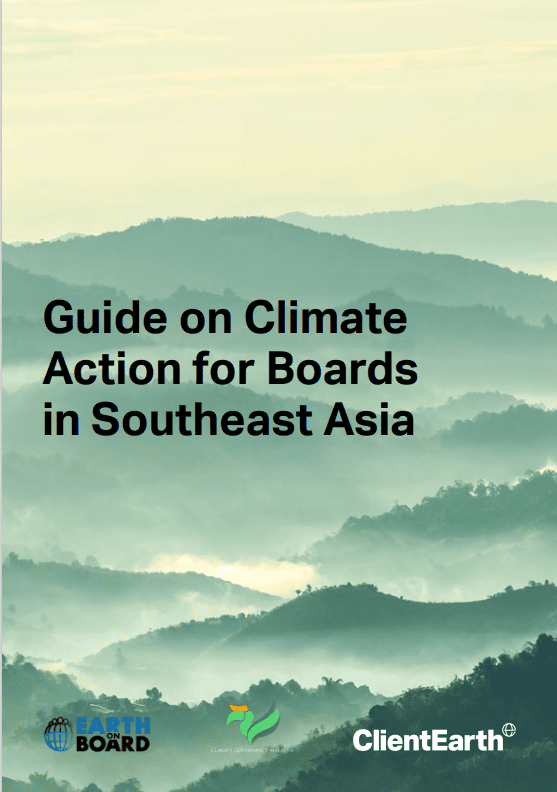
This guide is intended to set out climate-related developments and associated legal risks relevant to boards in Southeast Asia, along with suggested ways in which boards can respond to those risks.

Karen Ellis, Chief Economist at WWF-UK, says that boards are looking for pathways to help them integrate nature into their transition plans.

Read Chapter Zero New Zealand and the External Reporting Board's transition planning guide for directors.

TITAN is a global leader in construction materials, with 120+ years of innovation and a strong focus on sustainability. Among the first cement firms with SBTi-validated CO2 targets, it prioritizes low-carbon operations, digital transformation, and advanced solutions for sustainable development.

Incentivization is key for effective climate governance on boards. Rewards must align with environmental goals, not just profits. Effective systems tie bonuses to measurable environmental outcomes, with clear performance metrics, frequent reviews, and alignment across all organizational levels.

The Learning Community: Conselheiros pela Amazônia project was carried out from March 2023 to May 2024 and aimed to create a network to discuss challenges and opportunities regarding sustainable development and conservation of the Amazon.

Integrating climate risks and opportunities into core business strategy is vital for long-term resilience. Focusing solely on short-term goals can threaten its viability. Additionally, embedding climate governance into the company’s structure and culture ensures effective organisational integrati...

A resource to support Australian board directors through the process of climate target setting

Read Chapter Zero New Zealand's second impact report for the year to March 2024.

As consumers become regulators, a reliance on nature becomes a cost to business. Find out why you need to know your baseline by watching this video from Chapter Zero New Zealand.

Advice and examples to support board members in establishing effective ESG governance within their organisations.

Integrating the voices of youth and nature into the decision-making processes of boards is vital to foster a more sustainable and regenerative future for both businesses and society.

Board members need to continuously assess short-, medium- and long-term climate risks and opportunities in order to take appropriate action in line with the specific needs of the company and the requirements of legislation, investors, financial markets, and business partners.

Caring for the climate exceeds the responsibility of a single person. For long-term and effective climate management, companies must establish multi-level governance structures tailored to their needs and capacities.

The topic of remuneration for board members in connection with ESG goals is becoming part of business reality. Read this guide from Chapter Zero Poland to learn more on this topic, including examples of good market practices in the area of remuneration policy for management board members. This gu...

Incorporating ESG and climate-related factors into employee incentive schemes has become an increasingly important tool for driving climate action. This guide, from Chapter Zero New Zealand, draws from conversations with remuneration/people and culture committee chairs, industry experts and natio...

Board members are required to understand climate science and impacts, continuously learn and adapt, for effective decision-making. Regular evaluation, education, professional consultation, scenario analysis, stakeholder engagement and review of board reports are the essential steps for achieving it.
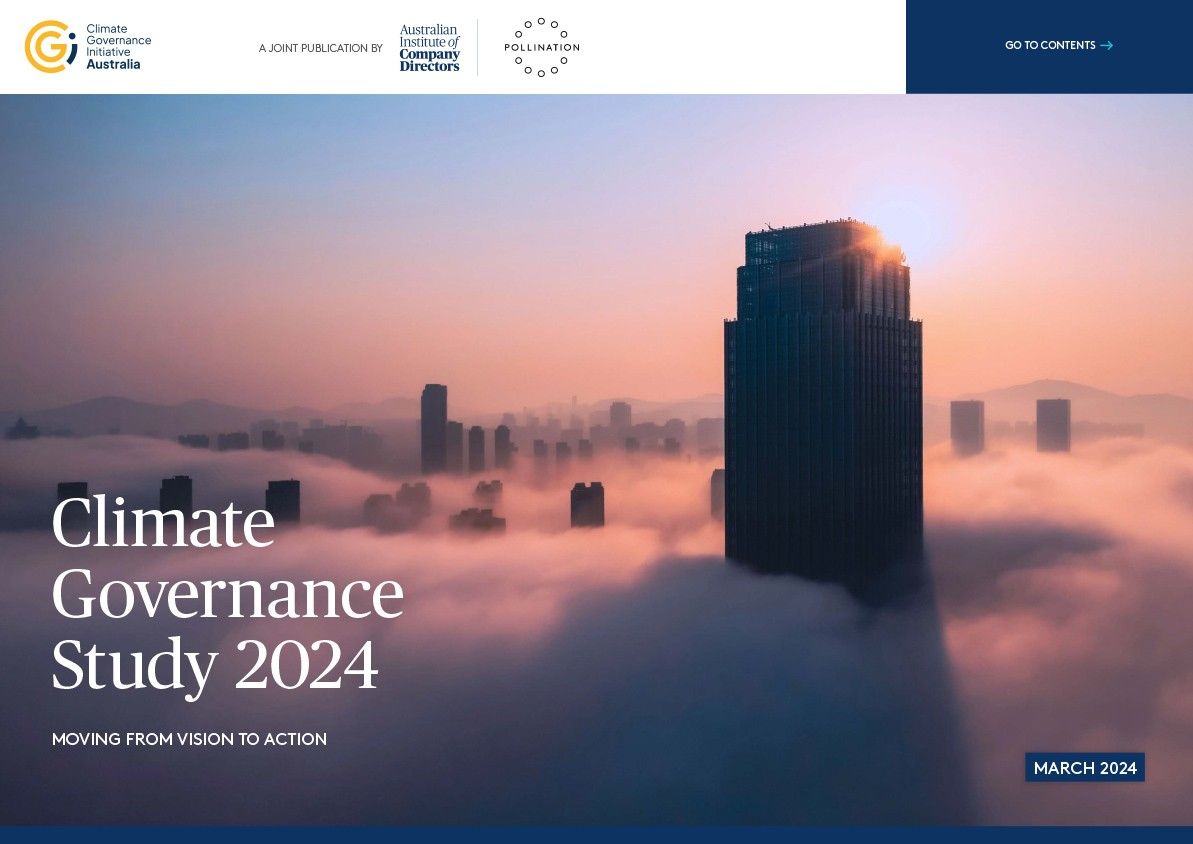
In 2024, Australian directors are intensifying their focus on climate change, yet organisations face growing challenges in executing their strategies. The Climate Governance Study 2024 acts as a ‘temperature check,’ assessing how perspectives and actions on climate governance are evolving among t...
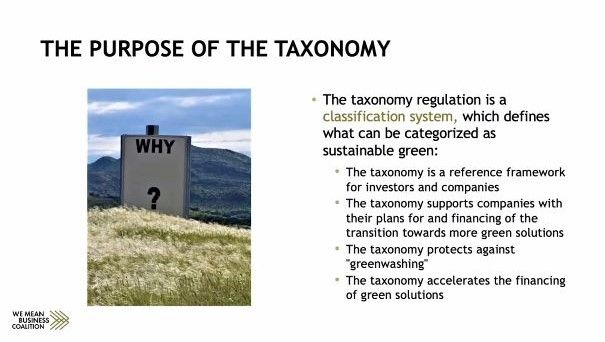
Event summary from the Boards Impact Forum of their recent discussion around: Aligning Sustainability Strategy, Regulatory Compliance and Incentives.

This blog piece explores the first of the World Economic Forum's effective climate governance principles, climate accountability on boards, and underscores the imperative for board members to integrate social and environmental concerns beyond legal mandates.
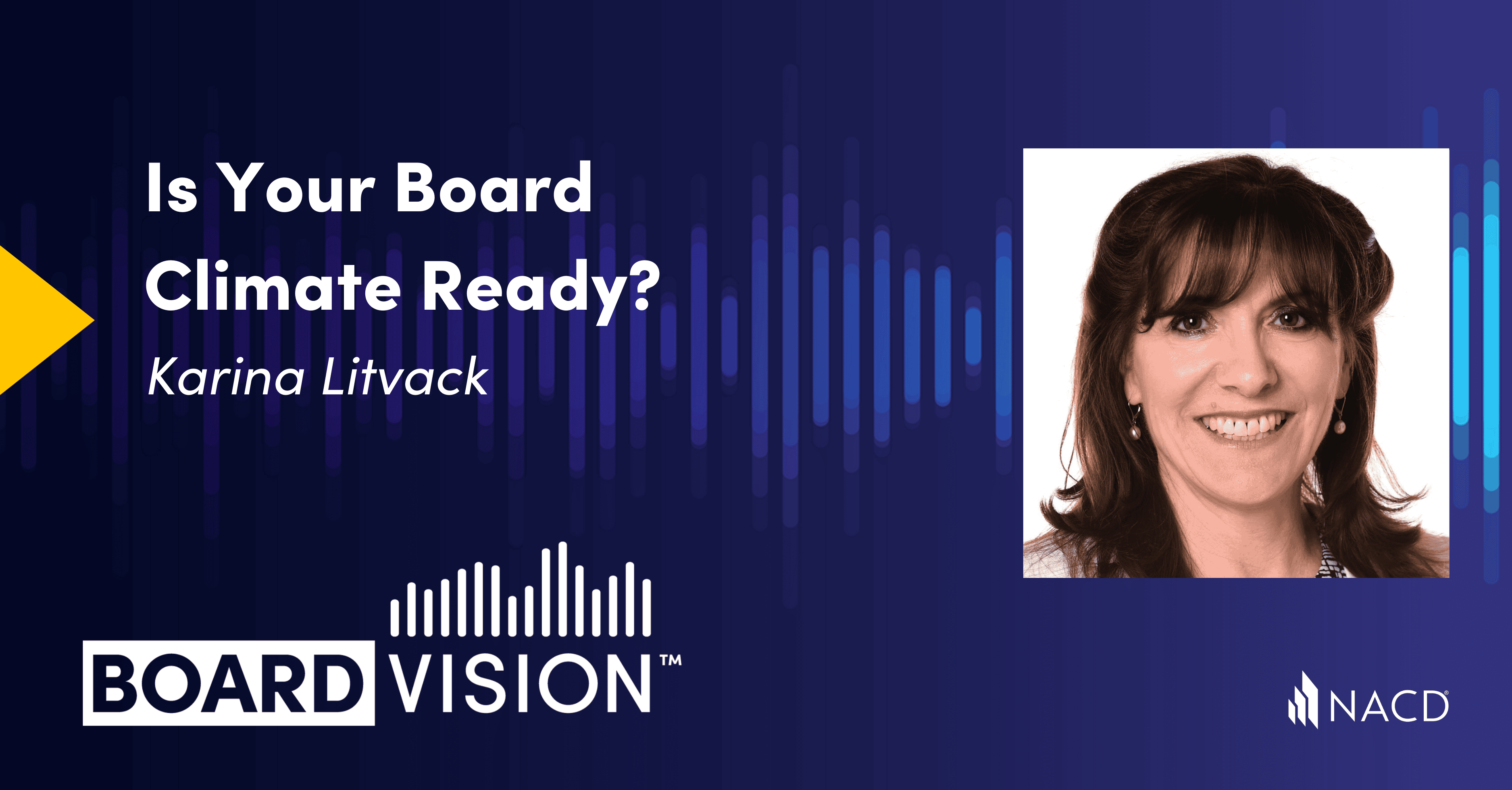
Karina Litvack, the former founding chair of the Climate Governance Initiative, launched in collaboration with the World Economic Forum, and a director on the board of Terna, offers her perspective on the state of climate governance.

A snapshot of the latest information on potential impacts of climate change on Australia and its industries to inform boardroom discussions on the need for climate scenario analysis and transition planning.

Chapter Zero Brussels' webinar explored climate governance in action, from the CEO and Head of Sustainability of Etex, watch the recording here.
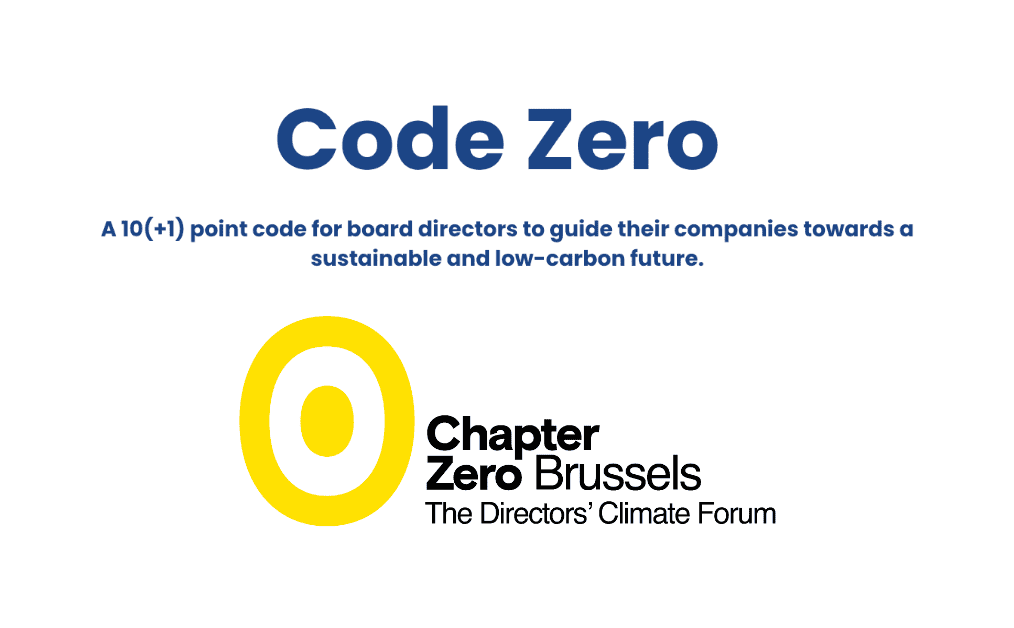
Chapter Zero Brussels have developed Code Zero - a 10(+1) point code for board directors to guide their companies towards a sustainable and low-carbon future.
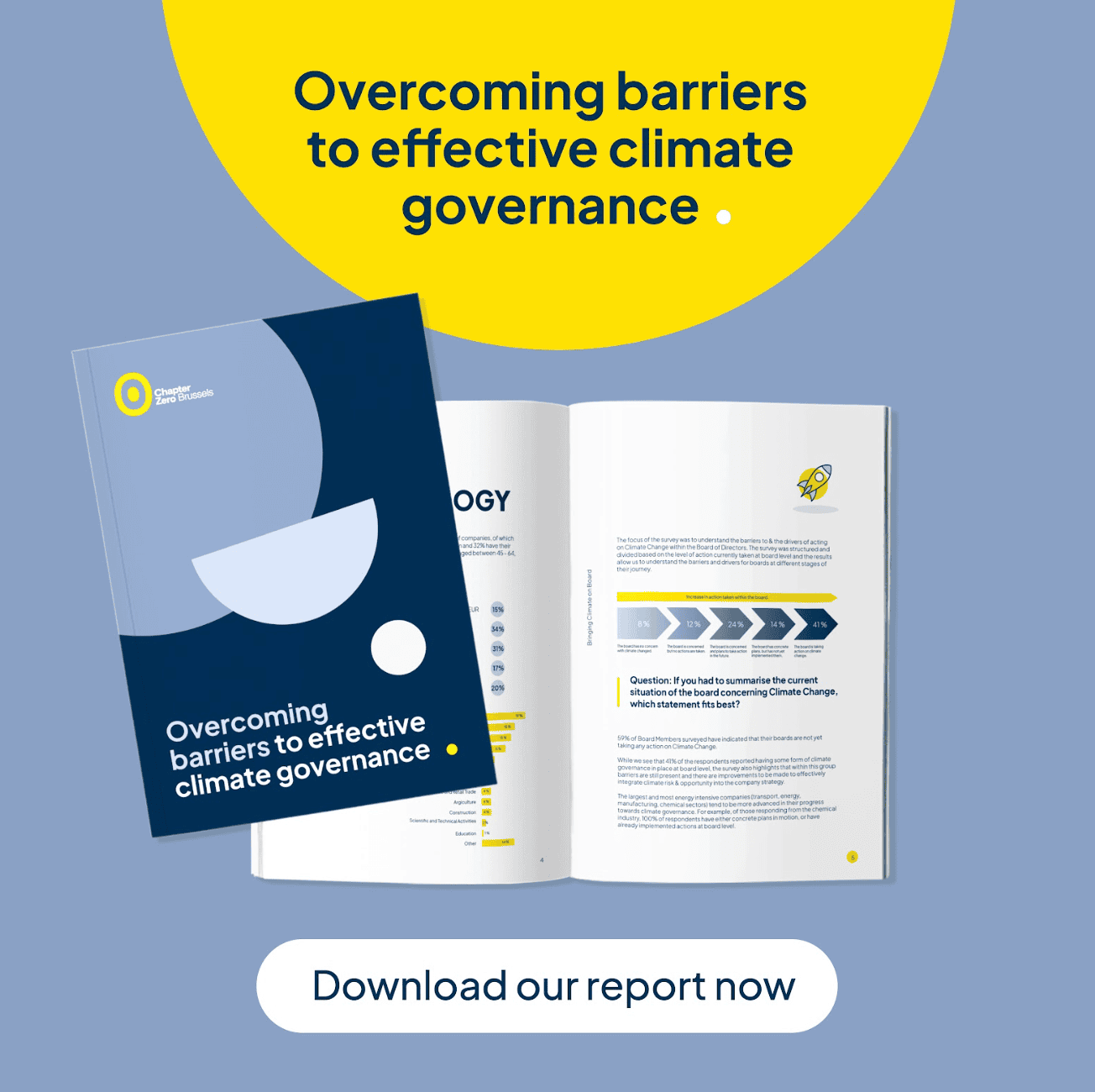
Outcomes from a report & survey from Chapter Zero Brussels exploring the barriers and the drivers for effective climate governance, as well as providing recommendations for board members to move forward.

The second edition of the Board Scorecard: The Role of Boards in the Face of Climate Impacts and the Net Zero Strategy survey strove to capture how boards, both of directors and advisory, have been dealing with the subject of climate change and the commitment to transition to a net zero strategy.

Directors have a critical role in identifying and managing climate change risks and opportunities. This guide from Chapter Zero New Zealand is to support directors to understand their role in the development, analysis and review of climate scenarios.

Practical guidance for Australian directors seeking to effectively oversee the transition to mandatory climate reporting.

The impacts of climate change are increasing in scope, scale and speed. The time to debate settled science or politics has passed. Organisations need to act. Directors must guide them. Read this guide from Chapter Zero New Zealand for practical guidance on effective climate governance.

A Chapter Zero guide for non-executives, "Climate action and remuneration: A pocket guide for remuneration committees", delves into the critical intersection of executive pay structures and climate goals, providing actionable insights for chairs and members of remuneration committees.

A collection of three resources to support boards in identifying the best climate governance structure and directors capabilities for their organisation. The resources consist of an overview of options to consider board structure and director capabilities, a Board Structure Quick Guide and New Ze...

An initiative of Chapter Zero Brazil and IBGC, this book brings together papers signed by leading organizations and professionals in the study and promotion of sustainability in Brazil, with experience and knowledge on environmental, social and governance issues.

Iniciativa do Chapter Zero Brazil e do IBGC, este livro reúne artigos assinados por organizações e profissionais líderes no estudo e promoção da sustentabilidade no Brasil, com experiência e conhecimento sobre a temática ambiental, social e de governança.
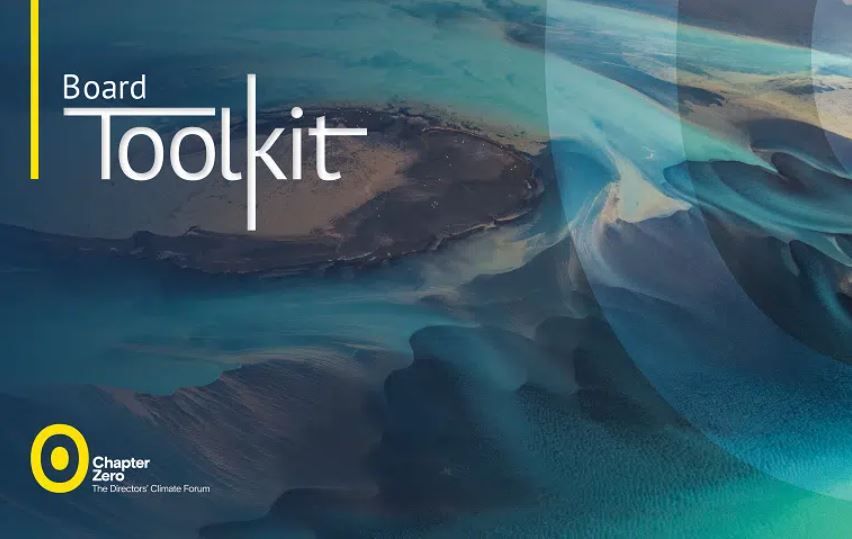
The purpose of this Toolkit is to provide non executive directors with evidence and support to address climate change as a strategic business issue on their boards, and to show how they can help their boards take timely, positive and decisive climate action through five clear steps.